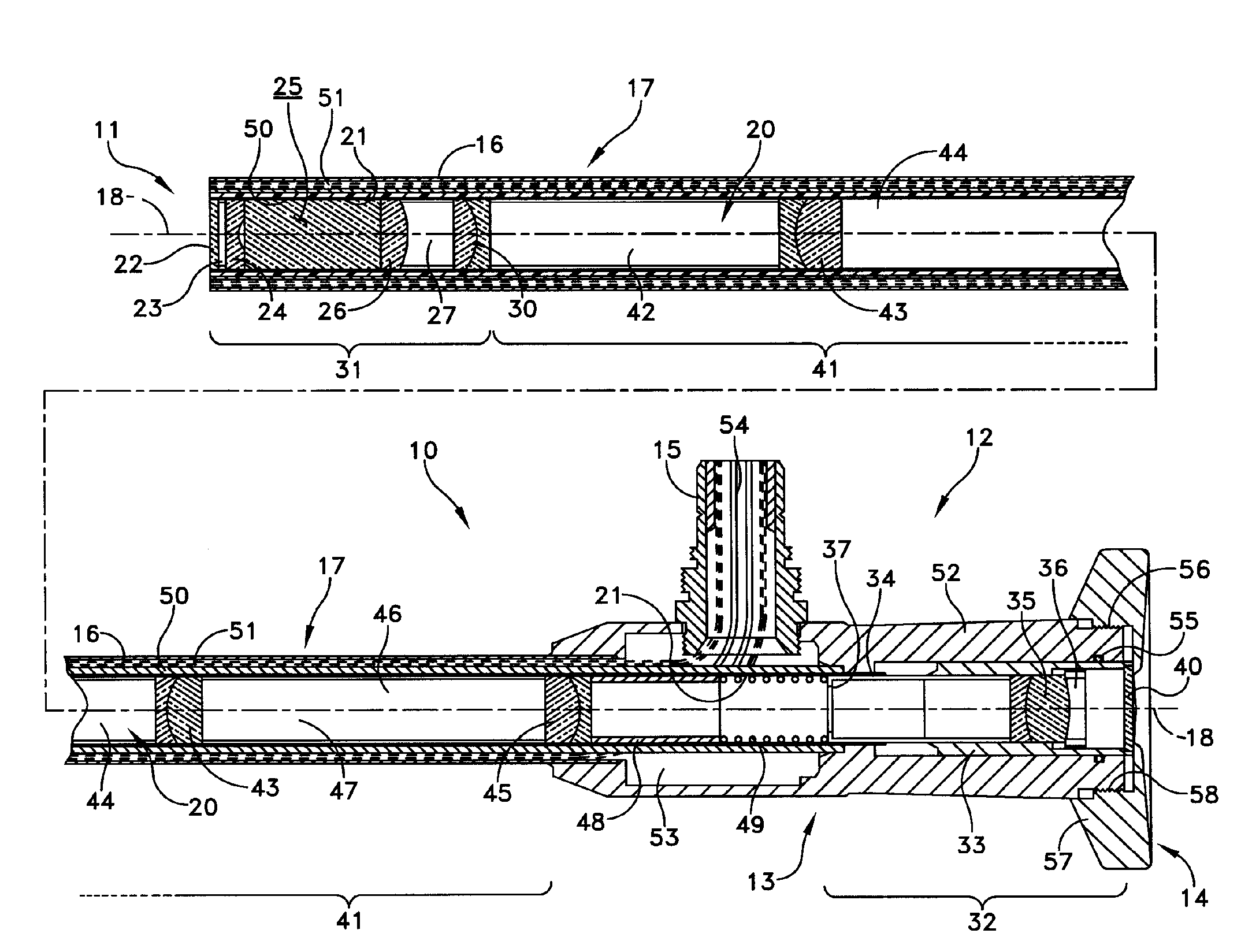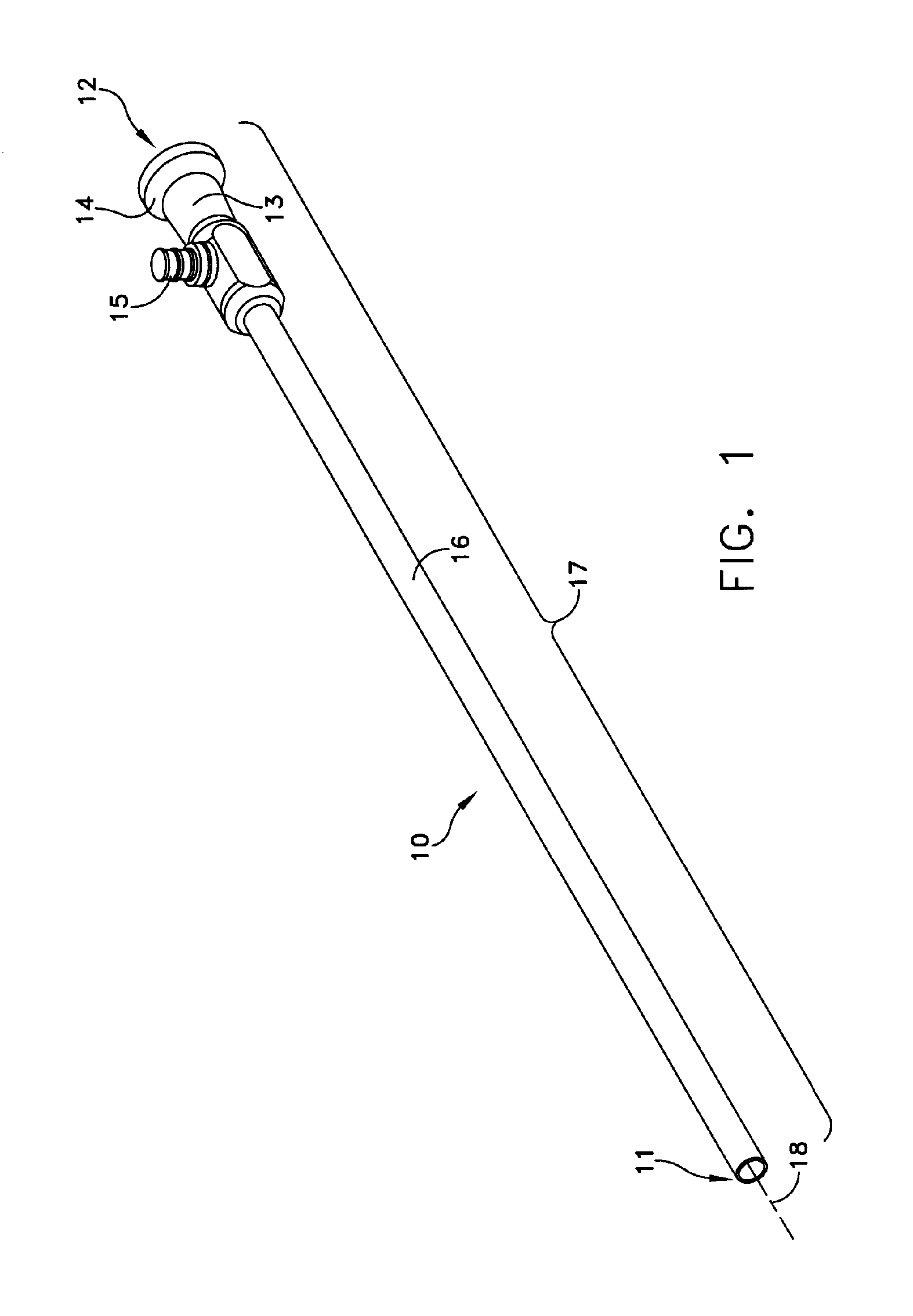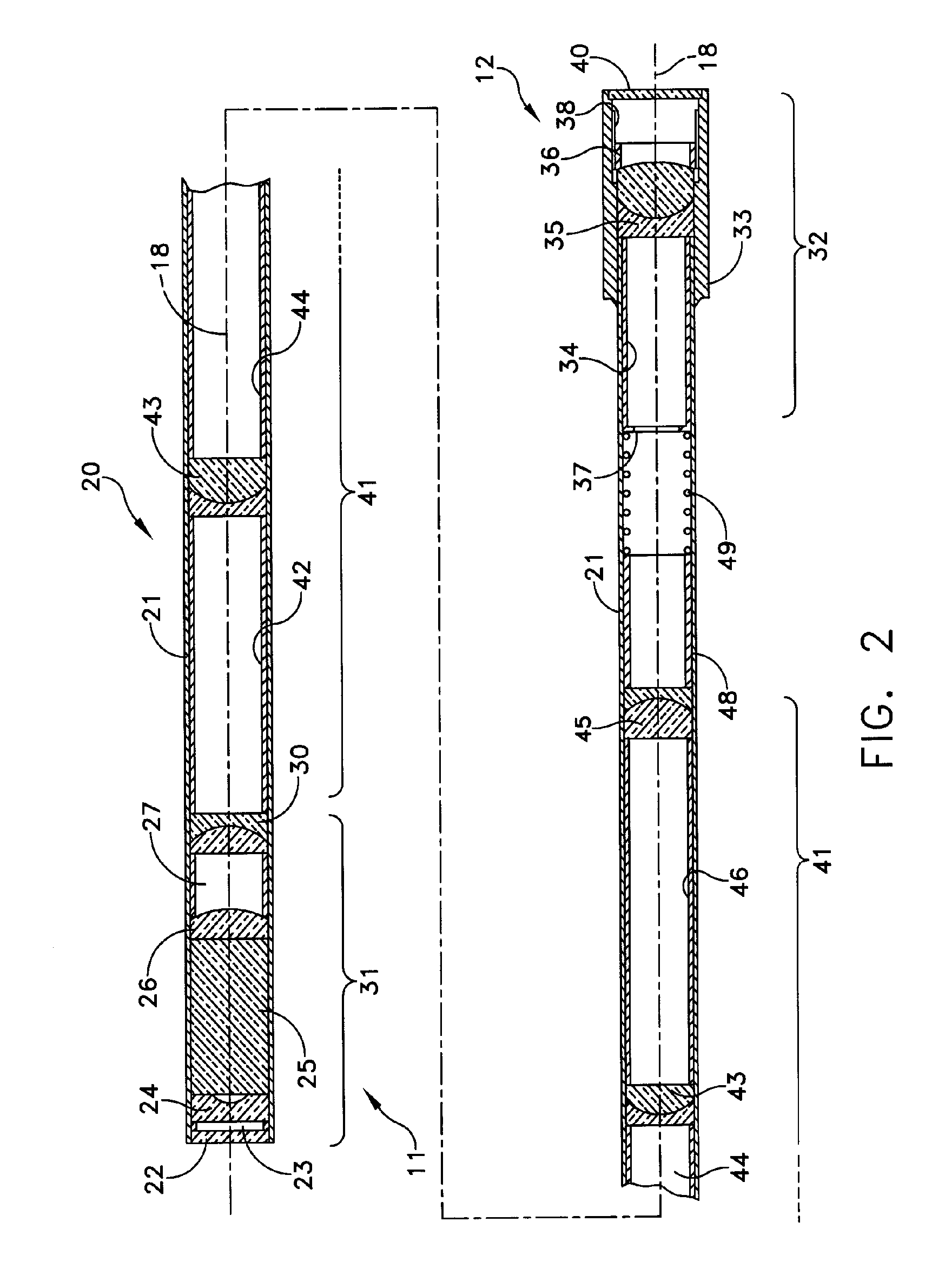Repairable endoscope
a technology of endoscopes and endoscopes, which is applied in the field of endoscopes, can solve the problems of damage to the endoscope, distortion or degradation of the image quality, and other stresses on the endoscope during normal use, and achieves the effects of convenient repair, easy manufacturing, and easy repair
- Summary
- Abstract
- Description
- Claims
- Application Information
AI Technical Summary
Benefits of technology
Problems solved by technology
Method used
Image
Examples
Embodiment Construction
[0029]FIG. 1 depicts an endoscope 10 as it appears to medical personnel for use. It extends between a distal end 11, the end closest to the object to be imaged, and a proximal end 12, the end closest to the person using the device. This view depicts an optical body 13 with an eyecup 14 through which the image is viewed. A fiber post 15 receives an output connection from an illumination source thereby to provide light for transmission through optical fiber to illuminate the object being imaged. An outer sheath of a tube 16 extends from the optical body. All of these elements constitute components of an outer housing subassembly 17 that extends along an optical axis 18.
[0030] The endoscope 10 houses an optics subassembly 20 as shown in FIG. 2. Specifically the optics subassembly 20 includes a tubular sheath 21 that extends along the optical axis 18. A distal window 22 that is formed of any material that will withstand autoclaving temperatures, seals the tubular sheath 21 at the dista...
PUM
 Login to View More
Login to View More Abstract
Description
Claims
Application Information
 Login to View More
Login to View More - R&D
- Intellectual Property
- Life Sciences
- Materials
- Tech Scout
- Unparalleled Data Quality
- Higher Quality Content
- 60% Fewer Hallucinations
Browse by: Latest US Patents, China's latest patents, Technical Efficacy Thesaurus, Application Domain, Technology Topic, Popular Technical Reports.
© 2025 PatSnap. All rights reserved.Legal|Privacy policy|Modern Slavery Act Transparency Statement|Sitemap|About US| Contact US: help@patsnap.com



